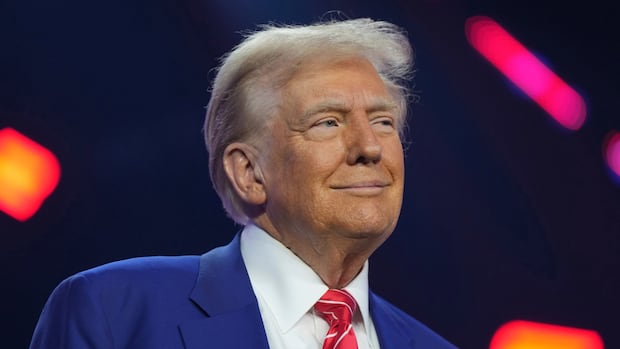Useful information
Prime News delivers timely, accurate news and insights on global events, politics, business, and technology
Useful information
Prime News delivers timely, accurate news and insights on global events, politics, business, and technology

US President-elect Donald Trump has escaped any legal punishment other than a criminal record for his serious crimes, after a judge on Friday imposed an alternative sentence called unconditional release on him.
Judge Juan Marchán’s ruling spares Trump prison sentences, fines or probation supervision for his conviction, although the sentence cements his record as the first convicted felon to occupy the White House.
The incoming president appeared remotely during the hearing with his lawyer on the courtroom’s television screens. Taking his opportunity to address the court, Trump maintained his innocence and called the case a “tremendous setback” for the justice system.
“I am totally innocent, I did nothing wrong,” said Trump, who will take office on January 20.
The president-elect was convicted in May on charges of falsifying business records to cover up a sex scandal that threatened to break out during his first presidential campaign in 2016.
A jury found him guilty on all 34 counts, making him the first president convicted of a felony.
Trump, 78, fought hard to stop his historic sentencing, including through an emergency request to the U.S. Supreme Court this week. On Thursday night, the high court refused to do so, by a narrow 5-4 majority.
Trump’s crimes carried a potential penalty of up to four years in prison and $5,000 in fines for each count. But trial courts have the power to impose a different sentence if they deem it appropriate, based on all the circumstances of the crime and the criminal.
Low new york lawA judge can choose unconditional release if he or she does not believe that prison time or probation is in the best interest of the public.
“An unconditional release is virtually nothing in terms of punishment,” David Dorfman, a law professor at Pace University in New York, told CBC News in an interview Friday.
“He is now forever known as a criminal, but there are basically no direct consequences for the 34 convictions. The former and future president owes nothing to the courts.”
SEE | Breaking down the evidence that led to Trump’s conviction in New York:
Former US President Donald Trump has been found guilty in his hush money trial in New York. CBC’s Anya Zoledziowski breaks down the evidence and key witnesses that led the jury to the historic conviction.
Dorfman said Merchan was subject to sentencing guidelines. In this case, Trump is a non-violent first-time offender convicted of the lowest-level felony in New York, and imprisoning the president of the United States would be deeply impractical.
“I think Judge Merchan would have been much tougher on him if he had lost the election,” said Dorfman, who is not connected to the case.
Prosecutor Joshua Steinglass told the court Friday that Manhattan District Attorney Alvin Bragg’s office supported Merchan’s planned sentence.
“The verdict in this case was unanimous and decisive and should be respected,” Steinglass said.
With the sentencing completed, Trump is now free to formally appeal the jury’s verdict. He can’t forgive himself because those presidential powers only apply to federal crimes, not those committed at the state level.
The New York case revolved around porn star Stormy Daniels, who threatened to go public during Trump’s presidential campaign about an extramarital encounter between them in 2006.
Trump’s former lawyer, Michael Cohen, negotiated a $130,000 payment to keep Daniels quiet.
Trump returned the money, but Cohen told jurors last spring that the former president orchestrated a scheme to falsify records and cover up the deal.
In a last-ditch appeal by the U.S. Supreme Court to halt the sentencing, Trump’s lawyers argued that their client was entitled to full immunity because of his Nov. 5 election victory.
The claim was based on a landmark Supreme Court ruling last year that granted former presidents broad immunity for official acts.
In rejecting Trump’s last-minute request to stay his sentence, five Supreme Court justices said Trump could address the issues he raised in the regular course of appeal. They also found that the burden the ruling would place on the president-elect’s responsibilities would be “relatively insubstantial.”